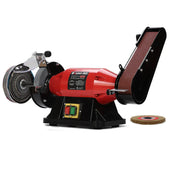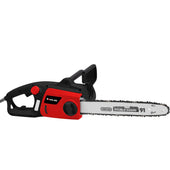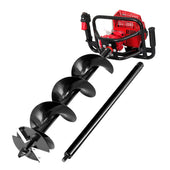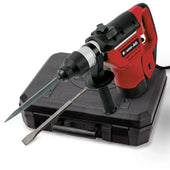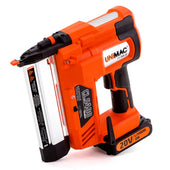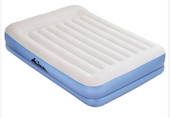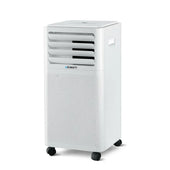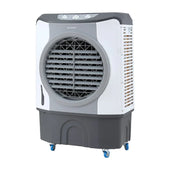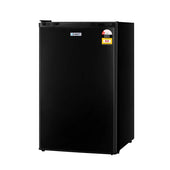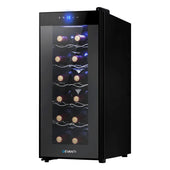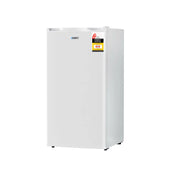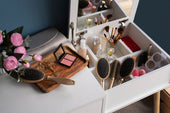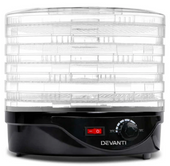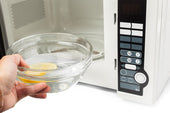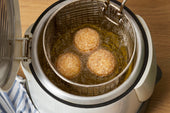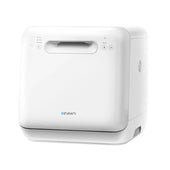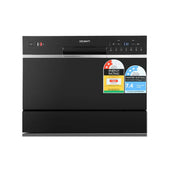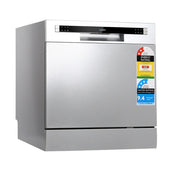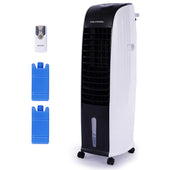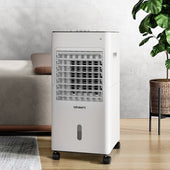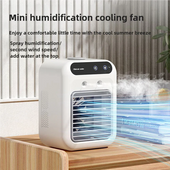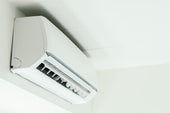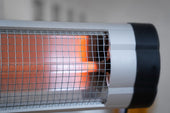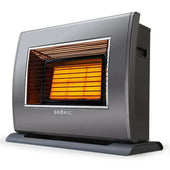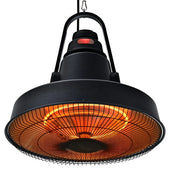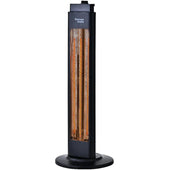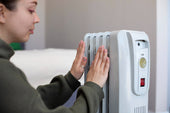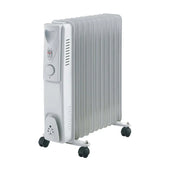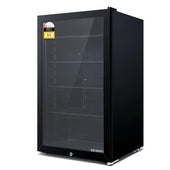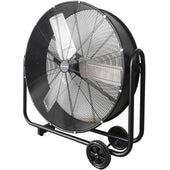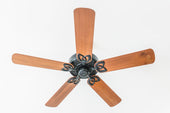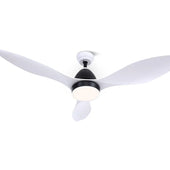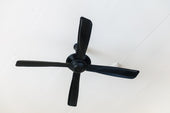Understanding the Basics: What Is a Humidifier?
A humidifier is a device designed to add moisture to the air, helping maintain an ideal humidity level in indoor environments. At During Days, we understand it is particularly useful in dry climates or during colder months when heating systems can make the air overly dry. By increasing humidity, humidifiers can provide relief from issues such as dry skin, irritated sinuses, and respiratory discomfort.
Types of Humidifiers:
- Evaporative Humidifiers: Use a fan to disperse moisture from a wet wick or filter.
- Ultrasonic Humidifiers: Use ultrasonic vibrations to produce a fine mist.
- Steam Vapourisers: Heat water to create steam for humidification.
These devices vary in size, functionality, and intended use for personal spaces or entire rooms.
Decoding Diffusers: How Do They Work?
A diffuser is a device designed to disperse essential oils into the air, creating an aromatic atmosphere. It operates by breaking down these oils into micro-particles and releasing them in a fine mist. The process typically requires water to dilute the oils, although some models use only air pressure.
Common Types of Diffusers:
- Ultrasonic Diffusers: Utilise ultrasonic vibrations to mix water and oils, producing a mist.
- Nebulising Diffusers: Use pressurised air for an undiluted and pure diffusion.
- Evaporative Diffusers: Rely on airflow to evaporate oils into the surroundings.
- Heat Diffusers: Employ gentle heat to release aromatic molecules into the air.
Each type varies in operation and impact, but all aim to spread the therapeutic properties of essential oils effectively.
The Core Purpose of a Humidifier vs. a Diffuser
A humidifier's primary purpose is to increase moisture levels in the air, making it particularly beneficial in dry environments or during winter months when heating systems can cause indoor air to become excessively dry. This helps alleviate issues such as dry skin, irritated sinuses, and other discomforts linked to low humidity.
Conversely, a diffuser disperses essential oils into the air, serving as an aromatherapy tool to promote relaxation, enhance mood, or freshen indoor spaces. Unlike humidifiers, diffusers focus on fragrance and therapeutic benefits rather than altering humidity levels. Each device fulfils distinct needs, highlighting their unique functions and applications in everyday life.
The Role of Essential Oils: A Key Difference
A significant distinction between a humidifier and a diffuser lies in the way each device interacts with essential oils. Diffusers are specifically designed to disperse essential oils into the air, allowing users to enjoy their aromatic and therapeutic properties. These devices often include built-in mechanisms, such as ultrasonic vibration, to break oils into fine particles.
In contrast, most humidifiers are not equipped to handle essential oils. Adding oils to a humidifier can damage its internal components and reduce efficiency. While some modern models accommodate essential oils, they remain the exception rather than the norm. This design difference underpins the separate purposes each device serves.
Impact on Indoor Air Quality: Humidifiers vs. Diffusers
Humidifiers and diffusers impact indoor air quality differently due to their distinct functions.
- Humidifiers: These devices are designed to increase humidity levels by releasing moisture into the air. They help combat dryness, improving comfort during winter or in arid climates. Their primary focus is reducing issues like dry skin, irritated sinuses, or static electricity caused by low humidity. Humidifiers do not typically add scents or other air-enhancing elements.
- Diffusers: Diffusers enhance air quality by dispersing essential oils, often creating a pleasant aroma indoors. Although they may not significantly alter humidity levels, some ultrasonic models release a small amount of moisture. Their primary effect lies in promoting relaxation, reducing odours, and providing mild air-purifying benefits, depending on the selected oils.
Each device addresses specific air quality concerns, offering unique solutions based on user needs.
Health Benefits: Comparing the Two Devices
Humidifiers and diffusers each offer unique health benefits, tailored to their specific functions.
- Humidifiers primarily benefit respiratory health by alleviating dryness in the air. Increased humidity can reduce issues like dry skin, irritated sinuses, and cracked lips, making them ideal for combating cold or allergy symptoms.
- Diffusers, on the other hand, focus on aromatherapy by dispersing essential oils. They may promote relaxation, reduce stress, and improve sleep quality, depending on the oils used. For instance, lavender oil is often associated with calmness and better sleep.
While humidifiers target moisture levels, diffusers contribute to emotional well-being, creating distinct overall effects.
Design and Technology: How They Differ in Operation
Humidifiers and diffusers are engineered with distinct purposes and mechanisms. A humidifier is designed to add moisture to the air, often using technologies like ultrasonic vibration, evaporation, or heat. Its goal is to improve air quality by alleviating dryness, which benefits respiratory health and reduces skin irritation.
Diffusers, however, aim to disperse essential oils into the air. They often utilise ultrasonic waves or, in some cases, heat to break essential oils into fine mist, maintaining their therapeutic properties.
While humidifiers focus on improving humidity levels, diffusers are more centred on aromatherapy. Thus, their operational designs reflect their differing purposes.
Room Size and Coverage: Choosing the Right Device
The effectiveness of humidifiers and diffusers largely depends on the size of the space they are intended to serve. Humidifiers are designed to work in larger areas, such as living rooms or bedrooms, delivering consistent moisture levels across the room. They often feature higher output capacities suitable for spaces exceeding 150 square feet.
Diffusers, on the other hand, are typically better suited for smaller rooms or concentrated zones like an office or bathroom. Their primary function is dispersing essential oils, and their coverage tends to be more limited. When selecting a device, considering the square footage is critical to ensure efficient performance for the intended purpose.
Maintenance and Upkeep: Humidifier vs. Diffuser
Proper maintenance is crucial for both humidifiers and diffusers to ensure optimal performance and prevent health risks. Humidifiers typically require regular cleaning due to water residue and potentially bacteria or mould buildup, especially in models with larger tanks. Their filters may also need replacement periodically depending on usage.
Diffusers, on the other hand, demand more frequent cleaning as essential oils can leave residual buildup. Users need to rinse or wipe diffusers after each use to prevent clogged nozzles and lingering scents. Both devices benefit from manufacturer-recommended guidelines, making upkeep essential for longevity and consistent functionality.
Cost Comparison: Which One is More Affordable?
The affordability of a humidifier versus a diffuser depends on the device’s intended purpose and features.
- Humidifiers: Basic models start around £20-£30, with advanced units offering features like larger water tanks, adjustable mist levels, and humidistats priced upwards of £100. They are designed to cover larger spaces and have a primary function of adding moisture.
- Diffusers: Typically smaller, models aimed for essential oils start at £15-£25. High-end ultrasonic or nebulising diffusers, which blend aesthetics with functionality, may range between £50-£80. These focus on smaller areas and scent dispersion.
Additional costs may include essential oils for diffusers or filters for some humidifiers, influencing overall expenses.
Can Humidifiers and Diffusers Be Used Together?
Yes, humidifiers and diffusers can be used together, complementing each other's benefits. While humidifiers focus on increasing moisture in the air, diffusers are designed for dispersing essential oils to create a soothing atmosphere. Combining them can address dryness issues while also enhancing the environment with aromatic scents.
Here are some considerations for combined use:
- Purpose Alignment: Ensure the diffuser’s scent doesn’t interfere with the humidifier’s output if used for therapeutic goals.
- Device Placement: Place devices separately to avoid interference in airflow.
- Essential Oil Compatibility: Not all humidifiers can handle oils; check the model's specifications.
Using both devices together can help achieve balanced humidity and an ambient atmosphere when managed properly.
Common Myths and Misconceptions About Both Devices
- Humidifiers and diffusers serve the same purpose: A common misunderstanding is that both devices function identically. However, a humidifier is designed to add moisture to the air, while a diffuser primarily disperses essential oils for aromatherapy.
- Diffusers can substitute humidifiers: While diffusers release a small amount of water vapour, they are not effective at improving humidity levels in a room, particularly in dry environments.
- Essential oils can be used in all humidifiers: Adding essential oils to a humidifier, unless specifically allowed, can damage the device and may lead to improper functioning.
- Both devices clean and purify the air: Neither a diffuser nor a humidifier is intended to purify air. They do not eliminate dust, allergens, or pollutants. Users often confuse their functions with air purifiers.
Tips for Choosing Between a Humidifier and a Diffuser
Choosing between a humidifier and a diffuser largely depends on personal needs. Individuals seeking relief from dry air, especially in winter, may find a humidifier more suitable as it increases moisture levels in the room. Conversely, those looking to enjoy aromatherapy or diffuse essential oils should opt for a diffuser, as it is specifically designed for dispersing fragrances into the air.
- Assess health concerns: Those with dry skin, sinus issues or respiratory discomfort might benefit from a humidifier's ability to add moisture.
- Consider desired ambience: For relaxation, mood enhancement or therapeutic benefits, a diffuser is ideal.
- Space size and functionality: Larger areas often require humidifiers, while diffusers are better for small spaces.
Final Thoughts: Which One Do You Really Need?
Choosing between a humidifier and a diffuser depends on individual needs and priorities. A humidifier is ideal for addressing dry air, boosting moisture levels within a room, and improving comfort in colder seasons or arid environments. It is particularly beneficial for those experiencing dryness-related health issues like irritated sinuses or dry skin.
On the other hand, a diffuser serves those seeking aromatherapy benefits. By dispersing essential oils into the air, it supports relaxation, stress relief, and enhances the atmosphere with pleasant fragrances. While some devices can combine the features of both, it’s crucial to consider whether moisture or aroma is the primary goal.

